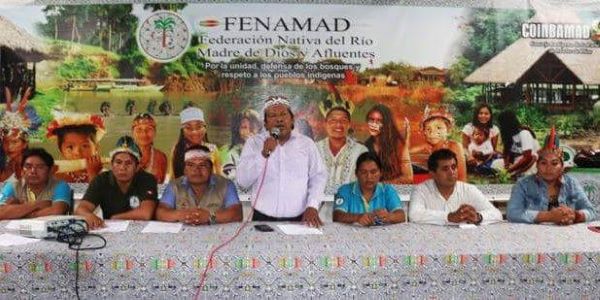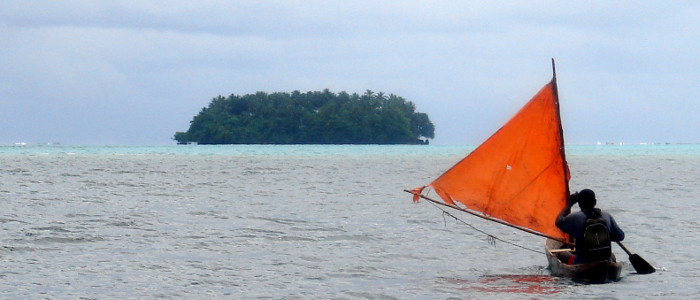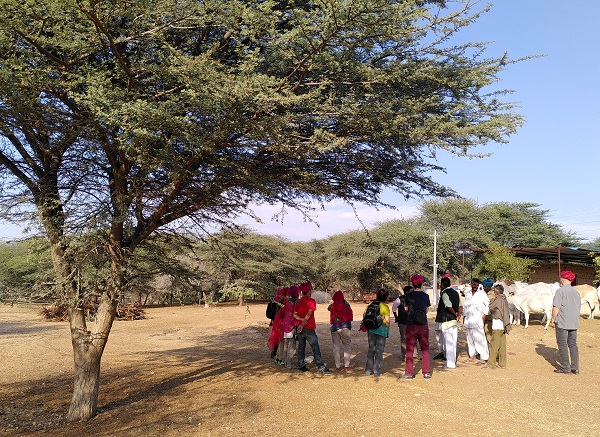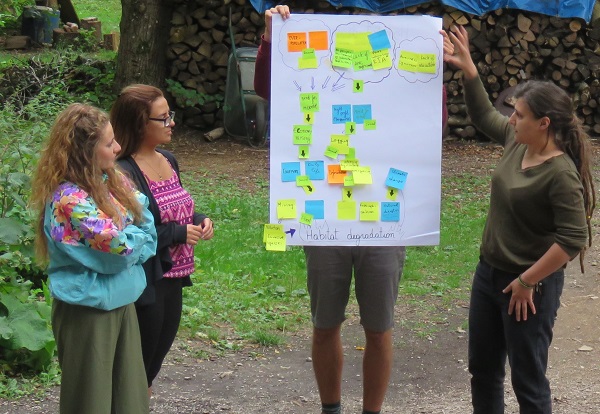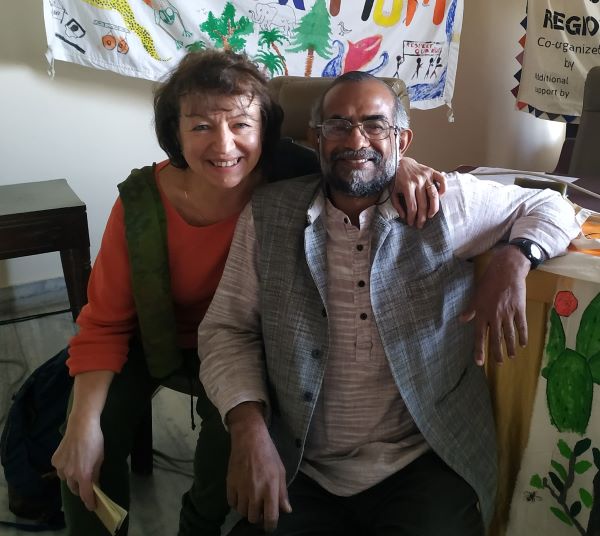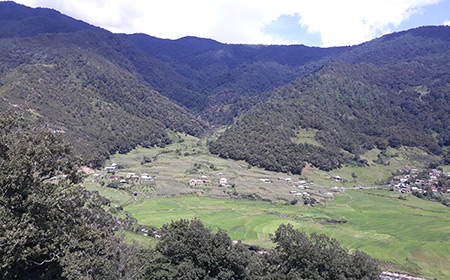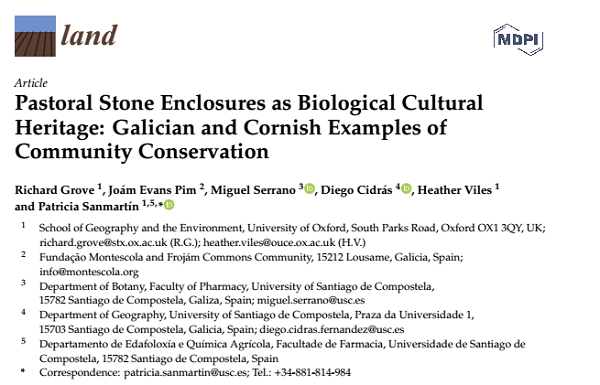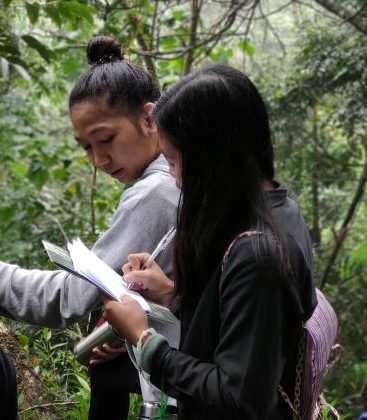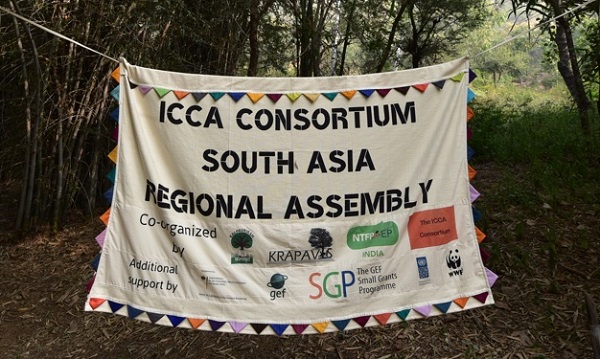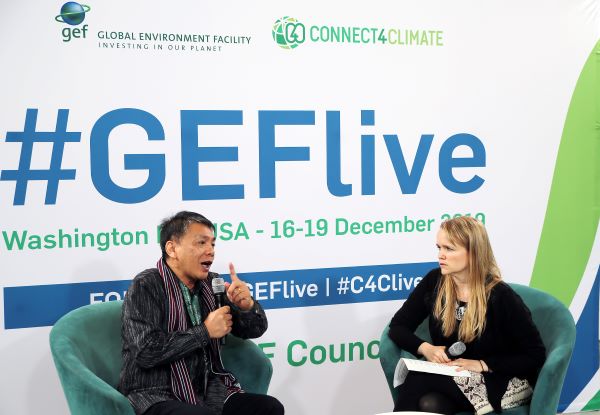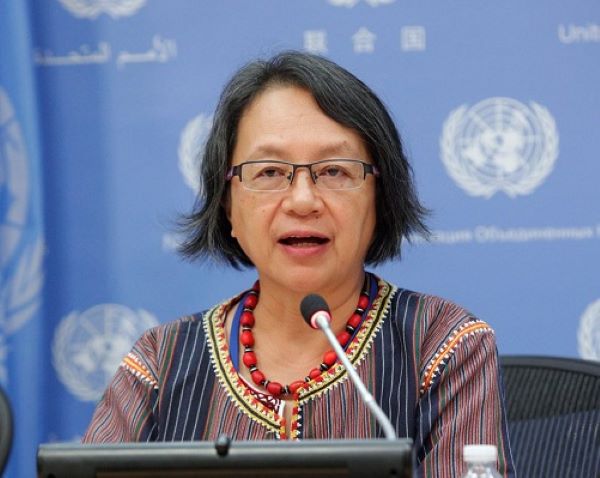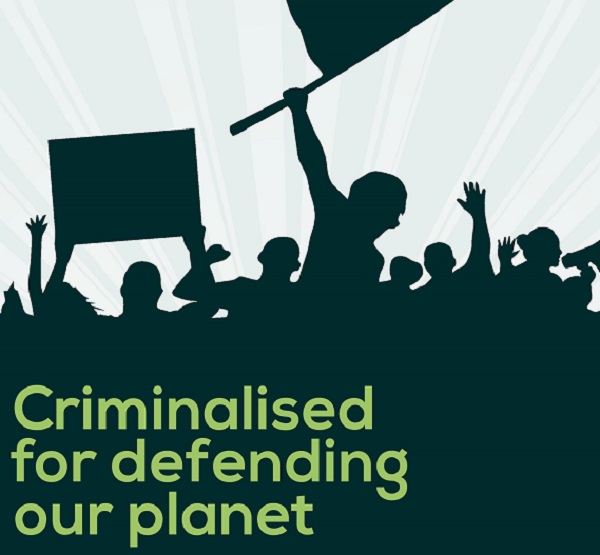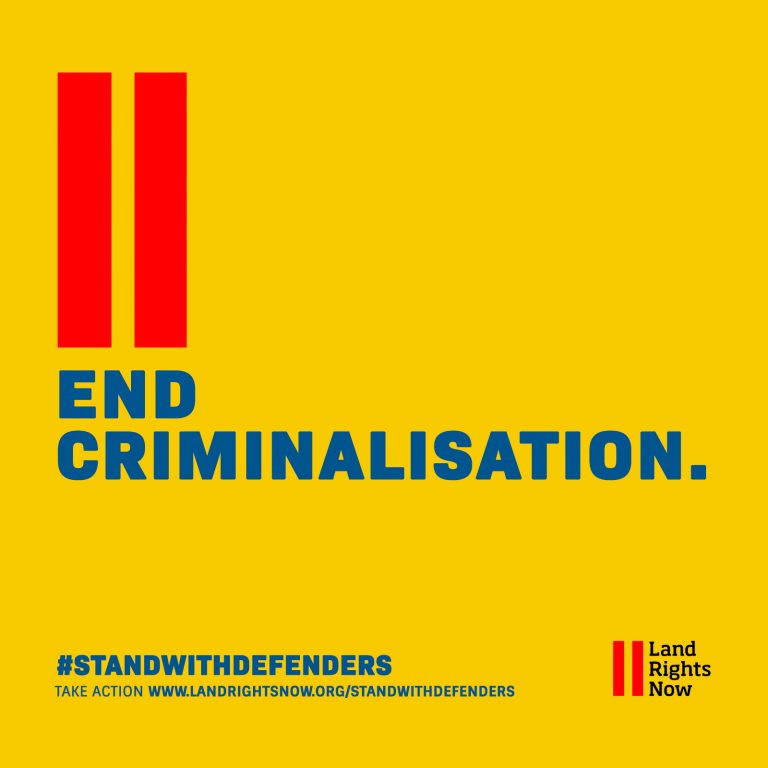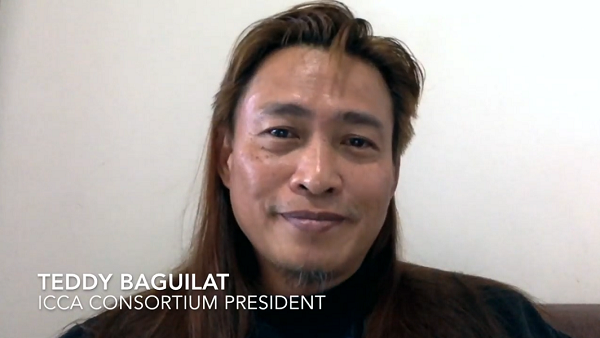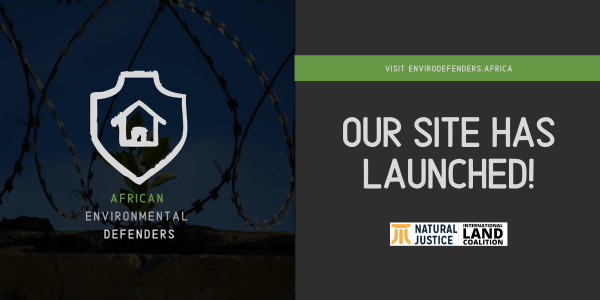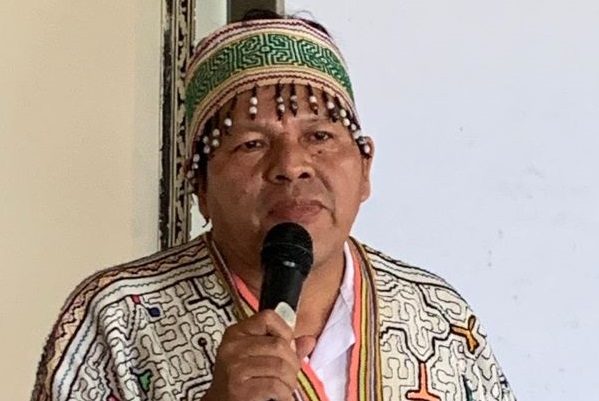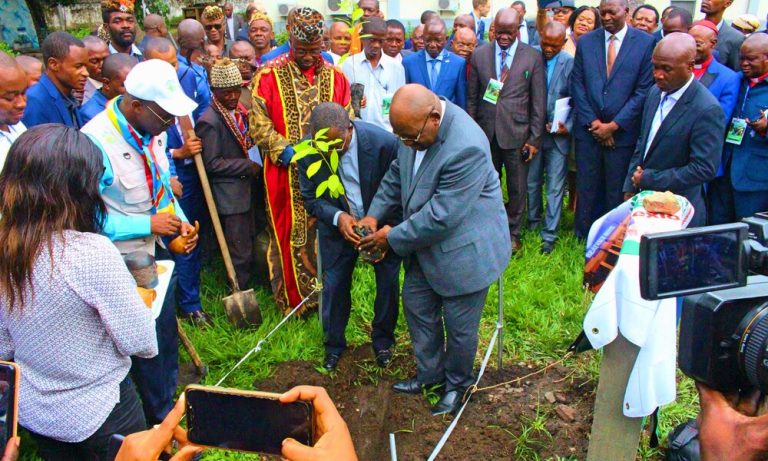Fenamad Celebra 38 años de Lucha por las Reivindicaciones Indígenas
FENAMAD (Miembro del Consorcio TICCA) cumplió 38 años de lucha para los derechos de los pueblos indígenas de la Amazonia peruana. En esta ocasión, FENAMAD organizó varios eventos y encuentros para recordar su historia, sus compromisos, y los retos del futuro. Read more ▸
Newsflash #25 – January 2020
Briefings on ICCAs around the world – issue #25 Read more ▸
The 2020s: An Era of Radical Change for Territories of Life, and a Future History Still to be Written
As we usher in a new decade – reportedly our ‘last chance’ to avert total ecological catastrophe – Global Coordinator Holly Jonas reflects on key changes and sets out the ICCA Consortium’s priorities for the coming year. Read more ▸
Without Youth and Children, Nothing is Possible!
Sharing her experiences in three youth-led international events in 2019, Emma Courtine, Honorary Member and Secretariat of the ICCA Consortium, reflects on opportunities and ideas for the Consortium to engage youth and enhance youth participation— including the creation of a youth platform within the Consortium! Read more ▸
Grazia’s Farewell Message as ICCA Consortium Global Coordinator
Grazia’s farewell message as Secretary of Council, Global Coordinator and Key Strategy Advisor of the ICCA Consortium: plenty of gratitude and some specific hopes and suggestions… Read more ▸
Indian Villagers Declare their Forest Community Conserved Area
In a move to conserve a forest area with a vital repository of endangered wild animals, the villagers of Chug, under the guidance of the WWF-India, have declared nearly 100 square kilometers of their forest area a community-conserved area. Read more ▸
Pastoral Stone Enclosures as Biological Cultural Heritage: Galician and Cornish Examples of Community Conservation
Co-authored by Joám Evans Pim, from our Member organisation Vilar Woods Commons Community, this paper describes how Frojám and Ladydown Moor ICCAs-Territories of Life are recovering their biocultural values, especially in terms of identity and positive conservation outcomes. Read more ▸
New Regionalisation and Policy Coordinator and Research and Publications Coordinator Appointed!
The President and Executive Committee of the ICCA Consortium are delighted to announce the appointment of Ameyali Ramos Castillo and Thomas Niederberger as new coordinators, with effect from 1 January 2020. Read more ▸
Indigenous Youth in Action: First National ICCA Youth Exchange in Nueva Vizcaya, Philippines
Non-Timber Forest Products – Exchange Programme (ICCA Consortium Member) organized the first Philippine ICCA Youth Camp. Bringing together 22 youth leaders representing 12 different indigenous peoples’ organizations and indigenous cultural communities, it spurred plans for more youth participation in the promotion of ICCAs in the country. Read more ▸
First ICCA Consortium South Asia Regional Assembly Traces the Way Forward for the South Asia Network
South Asia’s first Regional Assembly gathered Members and Honorary members and partners of the Consortium from India, Nepal and Bangladesh, in Rajasthan, Northern India to share experiences and define a way forward for community conservation in the region. Among these were the creation of seven thematic groups which listed immediate action points. Read more ▸
Video Interview of Giovanni Reyes, Philippine ICCA Consortium President
Giovanni Reyes speaks with the GEF Secretariat about inspiring work on ICCAs–territories of life in the Philippines and the many contributions of indigenous peoples and communities to nature conservation around the world. Read more ▸
XVth General Assembly – Rajasthan, India
The ICCA Consortium’s XVth General Assembly in Udaipur, India, was an important moment for the founding and next generation leadership. It marked the last GA co-organised by Grazia Borrini Feyerabend, one of the Consortium’s founders and leaders, who moved into the Council of Elders. The membership welcomed several new Council members by consensus, including a number of young leaders, as well as new team members in the global Secretariat. Read more ▸
Activists Launch New Global Initiative Against Criminalisation of Indigenous Peoples
Indigenous rights activists Victoria Tauli-Corpuz and Joan Carling have launched an independent initiative to prevent criminalisation of, and impunity against indigenous peoples who defend their traditional lands. In this initiative, they are building on years of experience in the Philippines, Asia, and around the globe. Read more ▸
“Criminalised for Defending Our Planet” – ICCA Consortium Supports Policy Brief as Part of Global Mobilisation Against Criminalisation
This 8-page policy brief explains different ‘stages’ of criminalisation and their effects on individuals and communities, especially women, and sets out key recommendations for ending the criminalisation of those who defend Mother Earth. Read more ▸
ICCA Consortium Supports Global Mobilisation Against Criminalisation of Land and Environmental Defenders
This global campaign urges all of us to #StandWithDefenders by shining a spotlight on indigenous peoples and communities who are criminalised for defending their territories of life. Read more ▸
Newsflash #24 – November/December 2019
Briefings on ICCAs around the world – issue #24 Read more ▸
A Word from our President following the XVth General Assembly
The ICCA Consortium held its XVth General Assembly from 2-3 December 2019 in Udaipur (Rajasthan, India). In this video, President Teddy Baguilat gives a short summary of the key outcomes of the Assembly and an overview of the important moments to come in 2020! Read more ▸
A new resource for African environmental defenders
On International Human Rights Day, Natural Justice (ICCA Consortium Member) and the International Land Coalition present “African Environmental Defenders”, a resource for African land and environmental defenders. It aims at providing funding support in emergency situations. Read more ▸
Video: Interview with Julio Cusurichi about the Defense of the Territory in the Amazon
Ashish Kothari interviews Julio Cusurichi, indigenous leader of the Shipibo people and President of ICCA Consortium Member FENAMAD, about territorial defense, threats, hopes and proposals of the communities represented by FENAMAD. Read more ▸
En République Démocratique du Congo, les Représentants Religieux S’engagent à Protéger les Forêts Tropicales en Reconnaissant les Territoires de Vie
A Kinshasa, ceux-ci ont affirmé que « la sécurisation des droits des autochtones sur leurs terres et territoires est une des meilleures garanties pour assurer la protection des forêts ». Read more ▸
